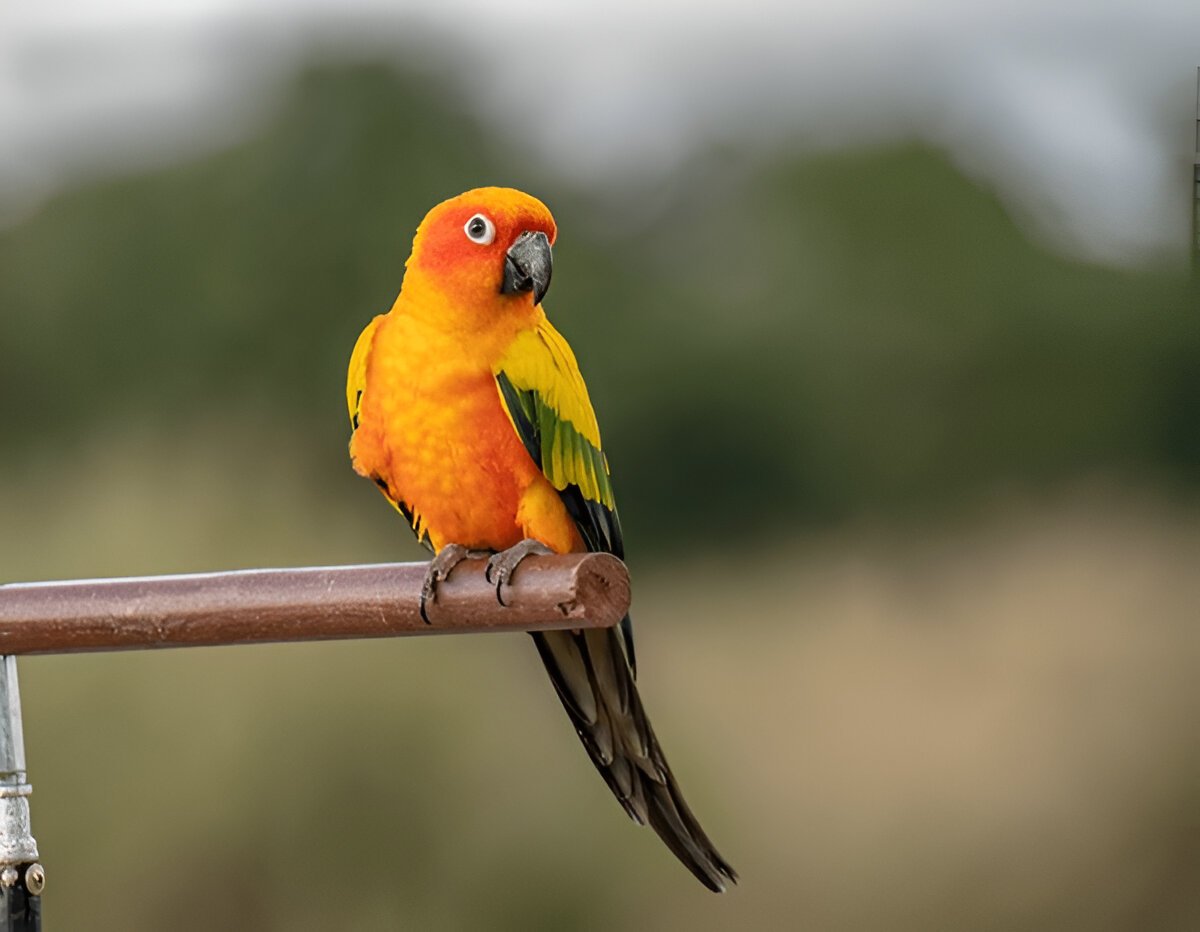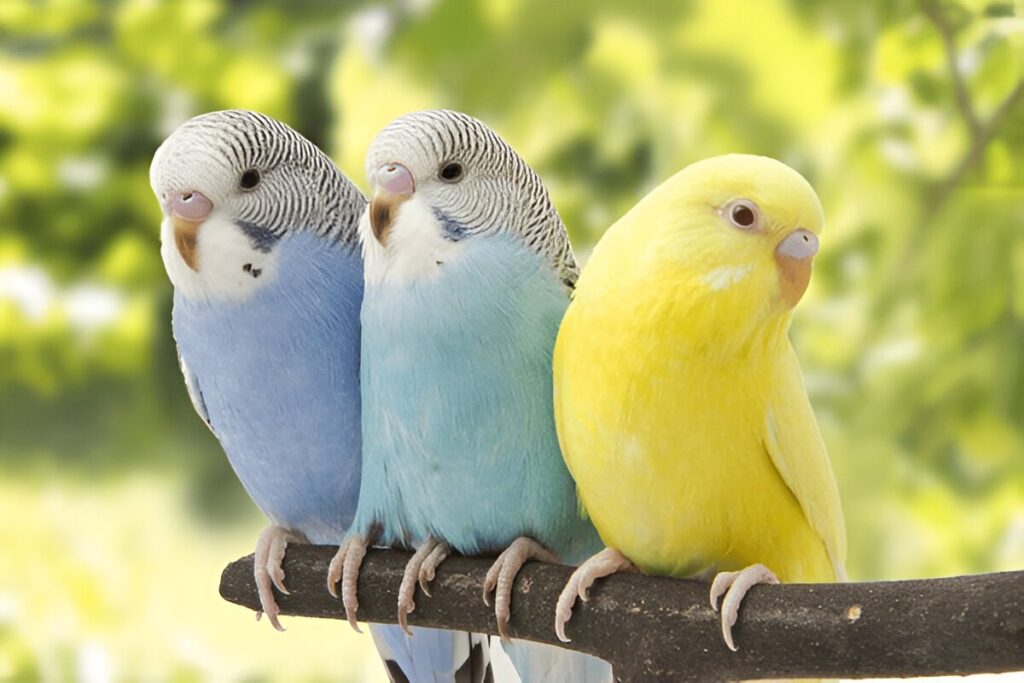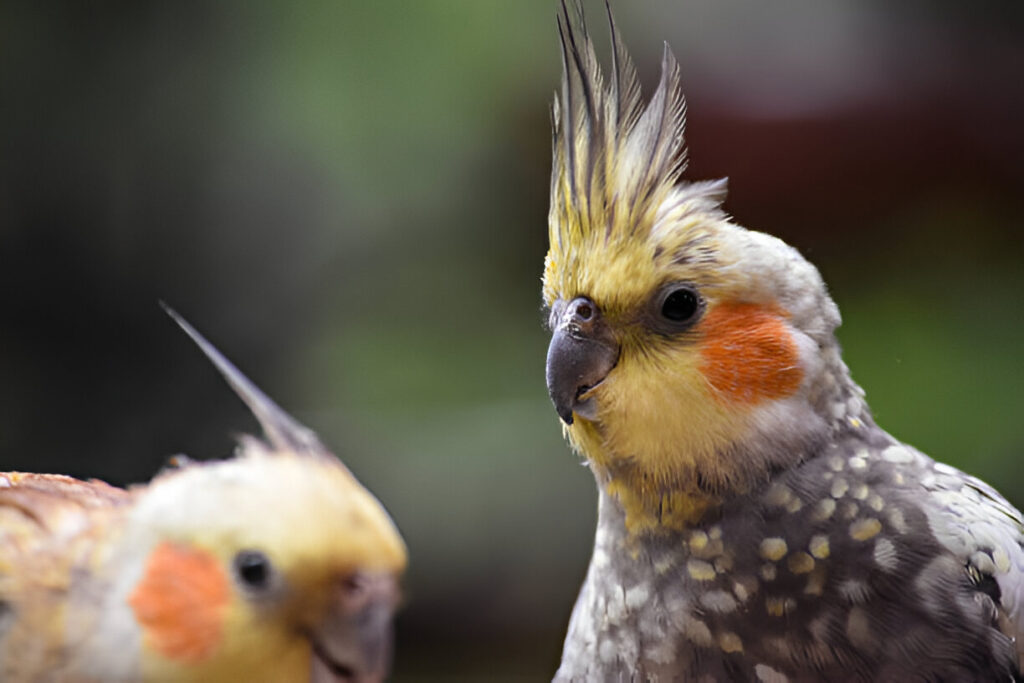Conures: Colorful, Playful, and Full of Personality
Conures are among the most popular pet parrot species, and for good reason. Brightly colored, playful in personality, and extremely affectionate, these small- to medium-sized parrots make quite pleasant companions. Native to both Central and South America, the Conures come in several species within the genera Aratinga and Pyrrhura.
All of them have their respective personalities. This is an extensive guide, covering just about everything one would need or want to know regarding behavior, habitat, diet, life expectancy, breeding, and care concerning Conures. Whether you’re a seasoned bird owner or considering a conure as your first pet, this blog will provide valuable insights into these captivating birds.
1. Introduction to Conures
Conures are small to medium-sized parrots known for their bright plumage, playful nature, and social personalities. Popular species include the Green-Cheeked Conure, Sun Conure, Jenday Conure, and Blue-Crowned Conure. These birds range in size from 10 to 20 inches and come in every color, from the bright yellows and oranges of the Sun Conure to the more subtle greens and blues of the Green-Cheeked Conure. Their intelligence, affectionate nature, and ability to mimic sounds make them a favorite among bird enthusiasts.
2. Behavior and Personality
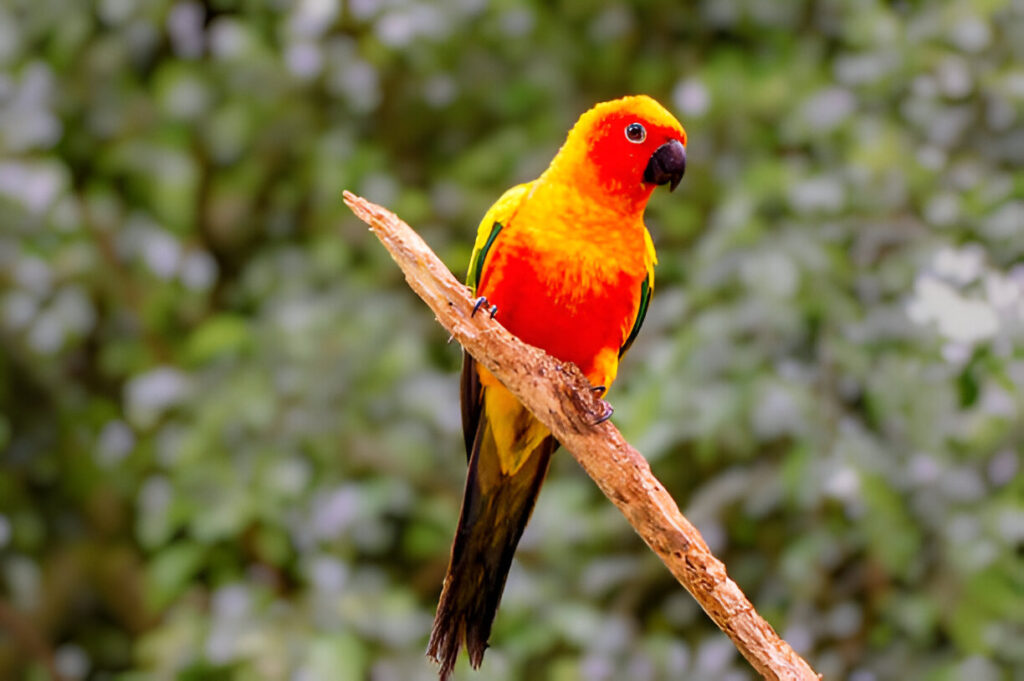
Conures are playful, extroverted, and affectionate. They are quite social and require much interaction and mental stimulation. Following are a few important points about their behavior:
- Playful Nature: Conures basically love to play with toys, climb, and explore their surroundings. They enjoy swinging, chewing, and solving puzzles.
- Attachment: Conures are very attached to the owner and demand attention and cuddles. They love to be part of the family and can become quite attached.
- Vocalise: While noisier than larger parrots, the Conure can be quite vocal: they chirp, squawk, and mimic sounds, though the loudness of calls may vary between species, with the Sun Conure probably topping the chart.
- Curiosity: Conures are naturally curious and like to investigate new objects and environments. This makes them fun and engaging pets.
3. Habitat and Natural Environment
Native habitats of conures include forests, woodlands, and savannas in Central and South America. They are adaptable birds found in a variety of different habitats, from dense tropical forests to open grasslands. In their natural habitat, they are usually seen in flocks, foraging for food and socializing with other birds.
4. Diet and Nutrition
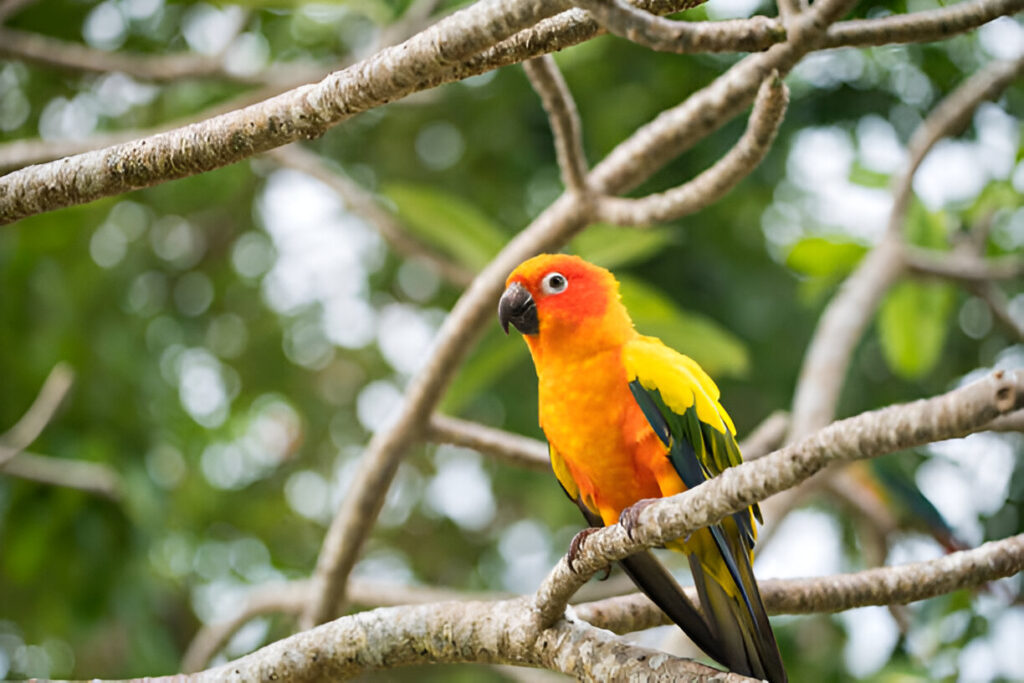
In the wild, conures have a varied diet that includes seeds, fruits, berries, and insects. Being pets, they require a balanced diet for good health:
- Staple Diet: The staple diet for them should comprise high-quality pellet food.
- Fresh Foods: Supplementing with fresh fruits-for example, apples and berries-and vegetables, like carrots and broccoli-is important.
- Seeds and Nuts: Offer seeds and nuts as occasional treats, but sparingly because they are high in fat.
- Protein: Add supplements with small amounts of boiled eggs or beans.
5. Life Span and Health
The life expectancy of the conure, when well cared for, can range from 20 to 30 years and even longer for some. Health Issues include the following:
- Obesity: Due to a diet too rich in seeds with too little exercise.
- Feather Plucking: Because of stress, boredom, or due to underlying health issues
- Respiratory Infections: due to poor ventilation or exposure to drafts.
Regular veterinary check-ups, a balanced diet, and a clean living environment are key to their health.
6. Breeding Habits and Reproduction
The birds are monogamous, with conures forming some of the strongest pair bonds. Wild birds nest in tree cavities or abandoned nests, while in captivity, pets require a nesting box and a quiet environment to be successful parents. The female lays 3 to 6 eggs, which hatch after about 23 to 25 days. Both parents share the responsibility of feeding and caring for the chicks.
7. Caring for Conures as Pets
Conures can be very great pets for those who understand what they need. Here are some care tips for them:
- Cage Requirements: Provide a large cage for flying and playing comfortably. Add perches, toys, and climbing structures.
- Social Interaction: Spend some time with your conure daily to ensure trust and bonding.
- Mental Stimulation: Rotate their toys regularly and introduce new games to keep them occupied.
Cleanliness: Clean the cage and food/water dishes regularly to prevent disease.
8. Training and Socialization
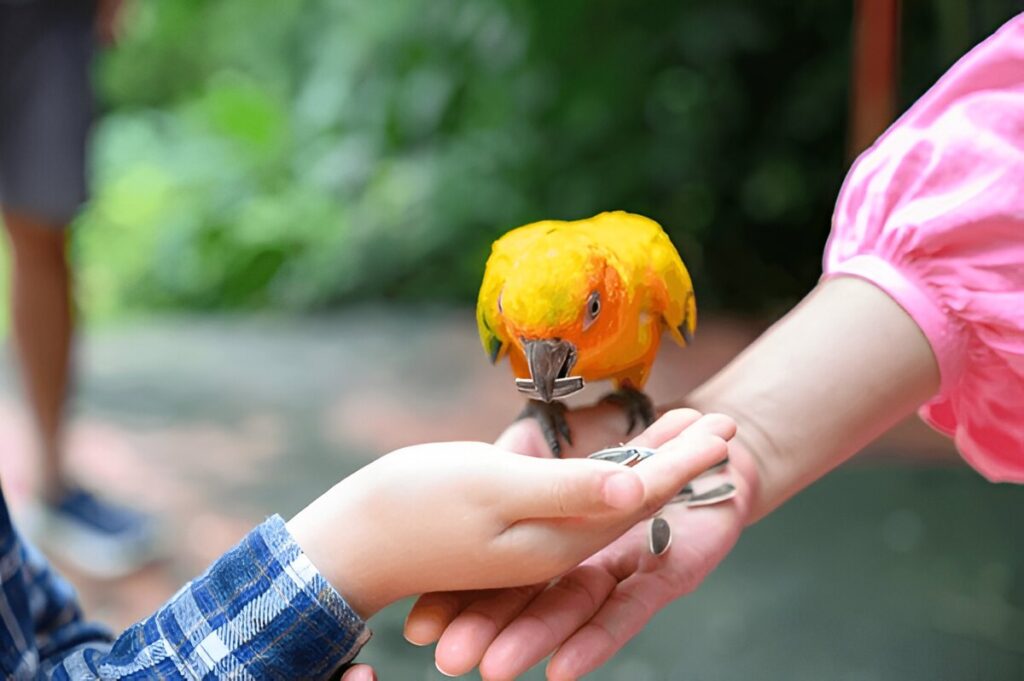
Conures are intelligent and can be trained to perform tricks, mimic sounds, and even use simple words. Positive reinforcement such as treats and praise works best. Early socialization is very important to prevent aggression or territorial behavior.
9. Common Challenges and Solutions
- Noise: Conures can be loud, especially in the morning and evening. Provide enrichment to keep them occupied.
- Chewing: They love to chew and can destroy furniture or household items. Offer plenty of chew toys to redirect this behavior.
- Territoriality: Conures can become territorial, especially around their cage. Consistent training and socialization can help manage this.
10. Interesting Facts About Conures
- Fluorescent Plumage: Conures are filled with bright colors, and the hues vary between species. For example, the colors of Sun Conures are bright yellows and oranges, whereas Green-Cheeked Conures have more somber greens and blues.
- Mimicry: Some conure species, including the Blue-Crowned Conure, are outstanding mimics and can learn to reproduce human speech and sounds.
- Social Birds: Conures are social, very much so, and they will do well in large groups as well as in domestication.
11. Conclusion
Colorful, playful, and affectionate, the conure can make wonderful companions for the right owner. The conure is considered one of the most intelligent, social, and capable of mimicry among all parrot species. Perceive its needs and give it proper care to let your conure live a happy and healthy life. This bird, whether the first or another addition to your feathered family, will bring joy and excitement into your home.
Yuns Legdm is a passionate advocate for pet care and the founder of this website, dedicated to providing valuable information for fellow pet lovers and veterinary professionals worldwide. With a deep love for animals, Yuns created this platform to connect passionate pet owners with expert insights from veterinarians around the globe.
This website grows with you—the passionate pet owners and veterinary experts—creating a trusted space where knowledge, experience, and love for animals come together. Whether you’re seeking advice on pet health, nutrition, or general well-being, this platform is here to support you on your journey of responsible and loving pet care.

